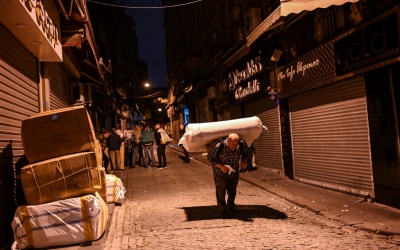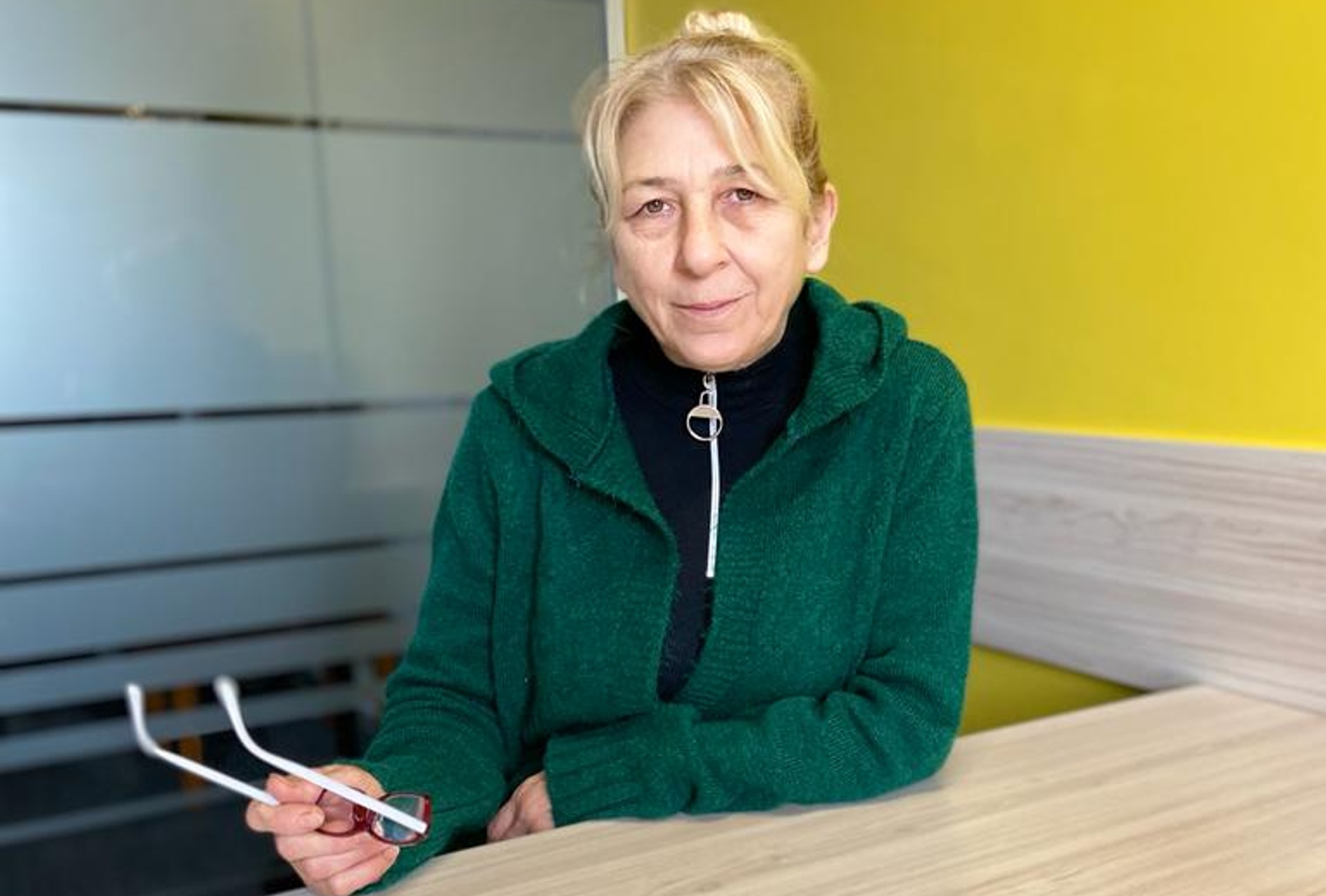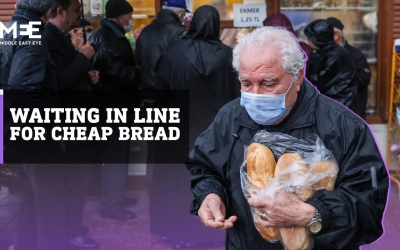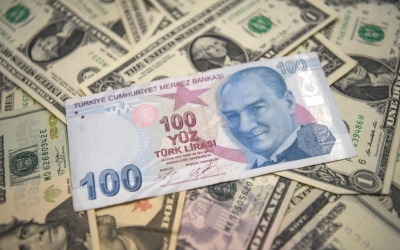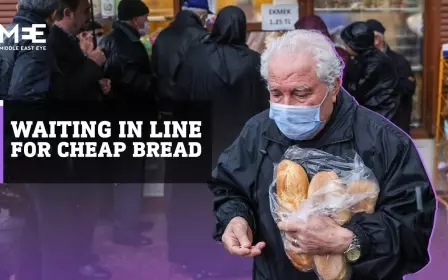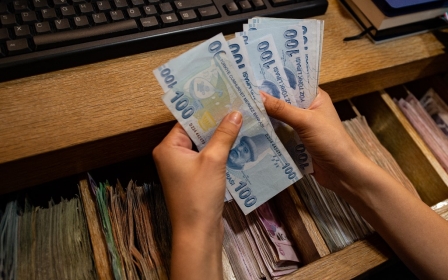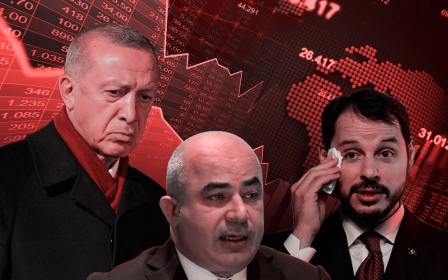Turkey lira crisis: Older Turks see parallels with past in currency collapse
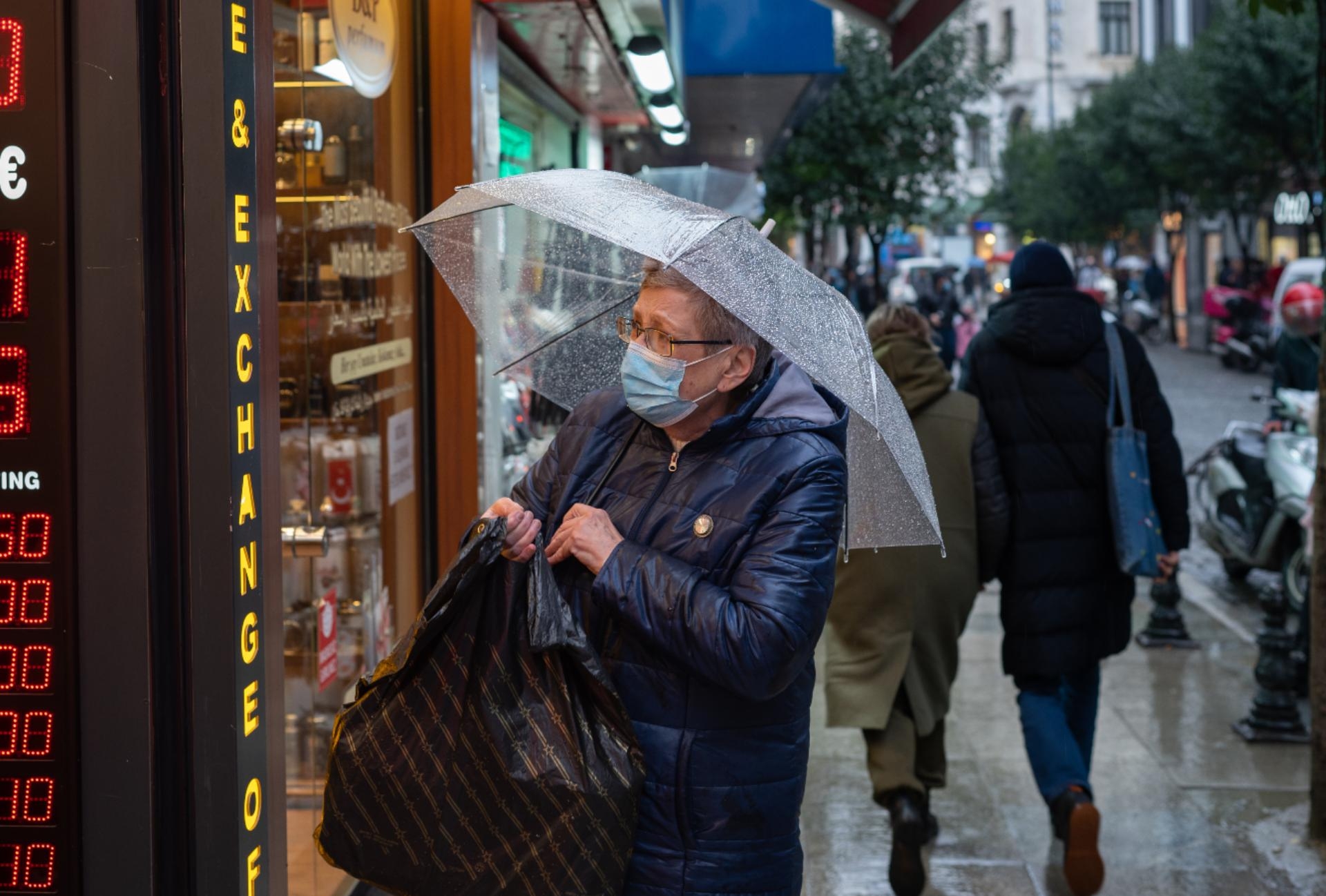
In Turkey, 1980 was a year of upheaval. In January that year, the government of Prime Minister Suleyman Demirel implemented radical economic reforms proposed by his key advisor Turgut Ozal, devaluing the lira and opening up the country’s previously closed markets to international competition and investment.
Later that year, in September, Demirel was removed from office in a military coup led by General Kenan Evren, which brought political stability at the expense of thousands detained and murdered, and a ban on political parties.
New MEE newsletter: Jerusalem Dispatch
Sign up to get the latest insights and analysis on Israel-Palestine, alongside Turkey Unpacked and other MEE newsletters
Husnu Satiroglu remembers it instead as the year it no longer became a crime to smoke an American cigarette on the street.
“It was a challenge to find and buy a packet of Marlboros before 1980,” recalled Satiroglu, a 74-year-old retired worker at a factory in Gebze, southeast of Istanbul.
“Then, everything changed. Turkey drowned in foreign goods. People liked it. But it didn’t end well.”
Prior to Ozal’s reforms, many imports, including Satiroglu’s Marlboros and other coveted items such as blue jeans and alcohol, were banned and could only be bought and sold on the black market.
Turkey prided itself on its state-managed economic self-sufficiency and promoted its own domestic industries through a policy of “import substitution industrialisation”. But this had resulted in some shortages of basic goods including fuel, building materials and even sugar and rice.
The 80s appeared to herald a turnaround in Turkey’s economic fortunes, as companies rushed to import foreign goods.
In the late 70s, inflation had reached 110 percent. By 1981 it had dropped back to 38 percent. After years of negative growth, the economy grew by around four percent in the year after the military coup and it continued to expand for the rest of the decade.
500 percent interest rates
But by 1994, Turkey was again facing an economic crisis, this time triggered by its growing dependency on foreign markets and foreign credit. A chronic trace deficit, coupled with the rising cost of government borrowing on the international markets, saw interest rates peak at 500 percent.
The Turkish lira depreciated against the US dollar by 160 percent between January and April, with inflation hitting 117 percent, and the economy shrinking by nearly 10 percent.
For workers like Satiroglu, the result was a collapse in the value of their wages - when they were paid at all.
“Purchasing power declined sharply. The factory began producing less. So, they didn’t pay salaries on time. We were refraining from buying even some basic goods such as meat,” he told Middle East Eye.
Satiroglu sees parallels with the current dramatic collapse in the lira’s value but he said he supported Turkish President Recep Tayyip Erdogan’s current policy of lowering interest rates.
Erdogan has defied economic orthodoxy by cutting rates as inflation has surged, arguing that low rates boost exports, investment and jobs.
On Thursday, the lira sank to an all-time low beyond 15 to the dollar, as the central bank cut the interest rates by one percent to 14 percent, despite concerns about runaway inflation.
Satiroglu says that the high cost of borrowing in 1994, coupled with a salary that no longer covered his living expenses, prevented him from investing in property or a business.
“If the interest rate had not been so high, I would have attempted to buy a house. Or, I would have tried to open a workshop for myself. We were dependent on the capital owners, including both the factory and banks.”
Turkey’s next economic crisis erupted in 2000, when the rising deficit and hyper-inflation forced the government to sign a deal with the International Monetary Fund (IMF), committing itself to economic reforms based on a fixed exchange rate in return for a $7bn loan.
The deal initially stabilised the market but also exposed the fragilities of Turkey’s banking sector. With the country under growing strain, in February 2001 a fight broke out between the prime minister, Bulent Ecevit, and president, Ahmet Necdet Sezer, in which Sezer threw a constitution booklet at Ecevit.
The dramatic moment triggered a political crisis in Ecevit’s weak coalition government that led to panic on the markets. Foreign investors started to withdraw their money as the value of the lira crashed by 40 percent. Turkish government bonds turned to junk and several private banks collapsed, with the economy shrinking by about 12 percent.
'The dollar doubled overnight'
Nuray Yildirim, now 57, was the marketing director of a private company with a fixed monthly salary when the crisis hit.
“My company couldn’t obtain payments from other companies to whom we were selling goods. We couldn’t import goods from abroad since the dollar doubled overnight,” Yildirim told MEE.
Yildirim is officially retired but is still working with another private company because of her rising living costs. She said the current crisis facing the country is worse than in 2001.
“Turkey was still meeting most of its needs on its own at that time and basic goods such as wheat, lentils or meat were domestically produced. Now, what do we produce? All the state-run factories were sold,” she said, referring to the sale of state-owned factories over the past two decades as part of privatisation policies pursued by Erdogan’s Justice and Development Party (AKP) government.
In 2020, the government collected around $62bn in revenue through the sale of 273 public assets, including Tekel, a factory producing cigarettes and alcoholic drinks, and Sumerbank, a textile factory. The government argues that these formerly state-owned assets were not making a profit due to mismanagement.
“In 2001, my husband lost his job and the company where I worked was closed. Our living standards decreased sharply,” said Yildirim. “But we managed to get by since everything did not depend on dollars to this degree.”
Yildirim said the current situation left her feeling hopeless for the future.
“The politicians should revise their approach to the economy. Now, small business owners are helpless as Turkey doesn’t manufacture raw materials. When consumption exceeds production, it means you are in trouble.”
Ahmet Derinpinar, 66, is a retired businessman who worked in textiles and construction in both Istanbul and Malatya. He fears that Turkey’s current crisis will hit the country harder than previous cycles of economic turbulence because of its exposure to global markets.
“Now, everybody invests their money in foreign currencies, unlike in 1994 and 2001. We had nothing to do with dollars in previous crises as we were able to buy domestically produced raw materials,” he told MEE.
“It is impossible to understand the nature of this crisis. The public sector is gone. The population in villages is about to vanish, making Turkey’s future darker since we’ll have to import more agricultural goods. This is insane!”
He believes the problem lies not only in the shortcomings of economic policy but in a wider mismanagement of the direction of the country.
“Turkey has hundreds of universities. Everybody attends university. Nobody learns crafts or proper vocations such as plumbing or dyeing. Nor can you find skilled workers in factories.
"There is no plan for orienting the young population. Instead, they [the government] thought that we could buy anything from abroad.”
Derinpinar said that previous economic crises, which had coincided with bouts of wider political instability, were not so deep-rooted.
“The main problem is that you consume but don’t produce,” he said. “Yes, Turkey’s textile sector is much better than neighbouring countries and even Europe. But you must export tons of textile goods to import one broken piece of a textile machine. So, do you see the imbalance?”
Neither Yildirim nor Derinpinar accept the argument that Erdogan's AKP has steered Turkey through a period of unprecedented development since it was first elected in 2001.
“Before this government, we had everything in Turkey. But technology has improved across the world. Naturally, Turkey benefited from these developments,” said Derinpinar.
Yildirim pointed out that many of the landmark infrastructure projects of the Erdogan era, such as the Osmangazi Bridge and the Eurasia Tunnel in Istanbul, had primarily benefitted the foreign companies involved in their construction, with many guaranteed revenues from state coffers for decades to come.
Banks 'like black marketeers'
Gurbet Altay, 53, is a businessman who used to run a company competing for public contracts to supply food to state institutions, including the army. He told MEE his business had been severely harmed by the 2001 crisis and said he saw parallels with the current situation.
“The devaluation of the Turkish lira at that time caused a similar problem to today. The price of any goods was not known. Wholesalers were unable to give a price for anything. It’s the same today.”
He agrees that Turkey has become overdependent on foreign goods.
“Turkey was a producing country. Now, you import even sugar. Unfortunately, our dependency skyrocketed,” he said.
Unlike others, though, Altay is hopeful for Turkey’s future. He thinks new technologies present opportunities for innovative Turkish companies to be competitive in a global marketplace.
He also supports Erdogan’s fight against interest rates and believes he is a stronger and more decisive leader than those that have steered Turkey through past crises.
“In 2001, the Ecevit government was not powerful enough to combat against hoarders,” he said.
“The banks were behaving like black marketeers. You had to be part of a web or network for a loan. We had seen even three digits in interest rates. How do you think you can run a business under those circumstances?
“Now, there is a crisis, but at least the president has promised a fight against the black market and is trying to keep interest rates low so that people can maintain their businesses.”
Middle East Eye delivers independent and unrivalled coverage and analysis of the Middle East, North Africa and beyond. To learn more about republishing this content and the associated fees, please fill out this form. More about MEE can be found here.


